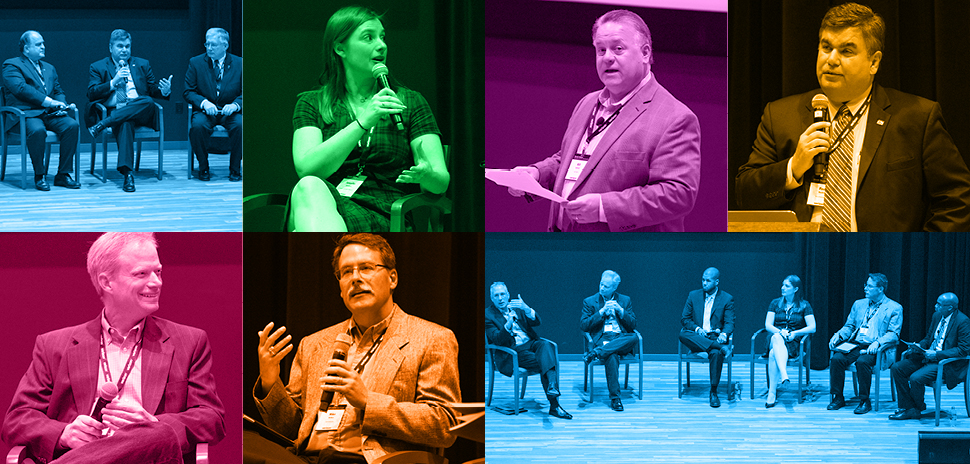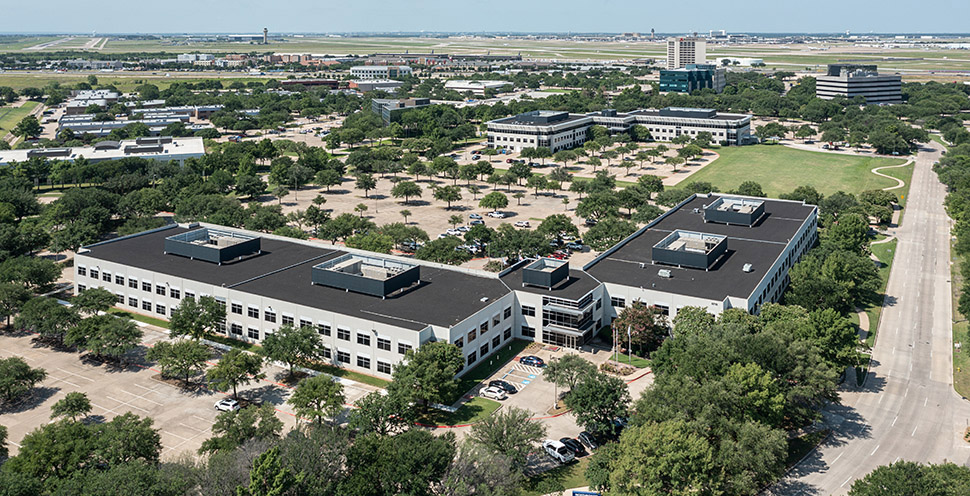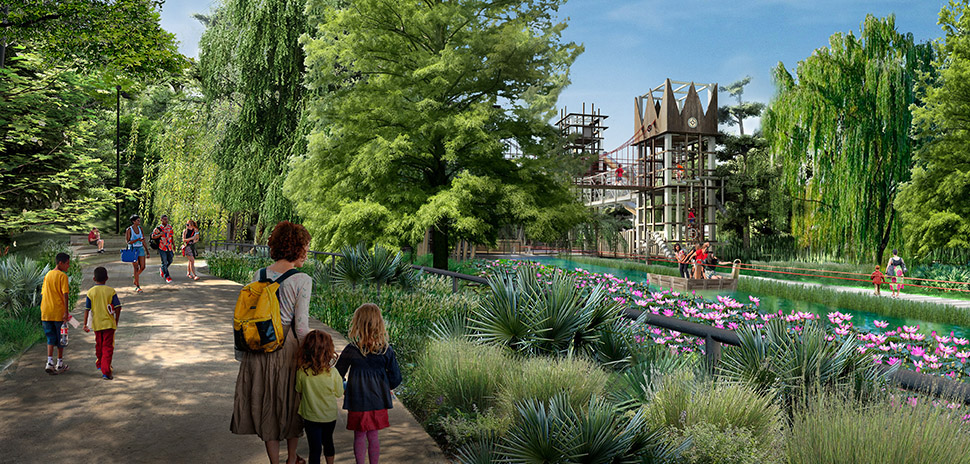![]() If the race to become a smart city were an offensive drive in a football game, how close to the end zone is the Dallas region?
If the race to become a smart city were an offensive drive in a football game, how close to the end zone is the Dallas region?
That question — raised at Tuesday’s North Texas Smart Cities Summit at the University of Texas at Dallas — captured the spirit of the gathering, where attendees listened attentively to glean what they can do to kick the region’s IQ up a few notches.
Simply put, a smart city harnesses data and technology, to improve people’s lives.
But, as experts said, there’s nothing simple about getting the metaphorical smart-city football into a hypothetical end zone. There are the inevitable false-starts, excessive celebrations, and the enormous complication of getting government, the private sector, and John Q. Public on the same page of the playbook.
“Sometimes, I feel we’re just coming out onto the field, and we need a lot of practice,” said Alicia Winkelblech, assistant director of strategic planning for the city of Arlington.
Winkelblech and others in the city are setting up two autonomous self-driving shuttles that will chauffeur people from parking lots to Arlington’s entertainment district, which is comprised of AT&T Stadium, Globe Life Park, and Six Flags Over Texas.
If all goes as planned, Arlington will have the first public, autonomous shuttle operating in the U.S., a definite score.
But, compared to cities such as Kansas City, which has installed 178 video/lighting devices along a two-mile stretch of its downtown to monitor public safety and to inform app-wielding drivers of open parking spots, the Dallas region has a substantial way to go.
“Sometimes, I feel like I’m about to score a touchdown,” said Anand J. Puppala, an associate dean for research in the College of Engineering at the University of Texas at Arlington. “Other times, I feel I’m just beginning.”
“… the thing we in government need to remember is that athlete in peewee football might be the major breakthrough, for what we need in transportation, in the next 20 years.”
Michael Morris
Puppala is working with the concept of modular construction, and the use of geofoam — specially formed blocks of foam — to prevent the earth from settling and shifting around bridges and embankments. So far, the Texas Department of Transportation has used the unconventional building method — which has been employed in Scandinavian countries, Japan, and other regions in the U.S. — in a couple highway projects in North Texas. Construction materials such as geofoam — often used where soil conditions are poor — are literally the building blocks of the smart cities movement.
North Central Texas Council of Governments Director of Transportation Michael Morris acknowledged that the rapidly changing technology that helped define smart cities makes it important for local governments to take first steps, and that individual efforts will add up.
“There’s a thousand football games, not one,” said Morris. “There’s peewee football, there’s professional football, there’s college football … the thing we in government need to remember is that athlete in peewee football might be the major breakthrough, for what we need in transportation, in the next 20 years.”
Topics at the summit spanned from initiatives that used data and sensors to improve how things are done at city and regional levels, to cybersecurity threats to communities that adopt smart city technologies. Experts also discussed ways smart city technology can be used to monitor and improve the efficiency of everything including building HVAC and electrical systems.
Attendees said the summit, attended by roughly 275 industry professionals, provided them the chance to interact with professionals from a wide variety of disciplines from traffic management and urban planning to engineers of all sorts. The experiences helped them more fully understand what defines a smart city, and what needs to be done to incorporate “smart” elements in the real world.
Many North Texans who are in the process of accomplishing just that were featured on panels at the summit. Among them:
Dallas Innovation Alliance Executive Director Jennifer Sanders spoke of her organization’s work with government and private firms to incorporate energy-efficient lights, a digital kiosk, and other elements into the Dallas Historic West End;
NCTCOG senior program manager Thomas Bamonte described his work in overseeing regional efforts to bring smart car and automated vehicle research to the Dallas region; and
Frisco traffic engineer Brian Moen, who is heading up smart-city traffic solutions in Frisco spoke of that city’s efforts to incorporate traffic flow data into the city’s traffic system, and its collaboration with Audi, Traffic Technology Services, and Trafficware. Frisco has installed Texas’ first smart city traffic control system.
Throughout the day, panelists agreed that while attempting to mesh technologies is challenging, overcoming egos, organizational silos, and institutional inertia poses an even greater hurdle.
Attendees and panelists alike were excited by advances that individuals and communities were making toward the smart city end zone.
“I’d love to sit in some of those meetings in Frisco,” said Christopher Poe, who is heading up the Texas A&M Transportation Institute’s Connected and Automated Transportation Strategy. Poe is coordinating work in establishing several test beds in Texas as part of a national strategy to advance automated vehicle technology.
READ NEXT
Smart Cities Summit: The World as We Will Come to Know it



































































